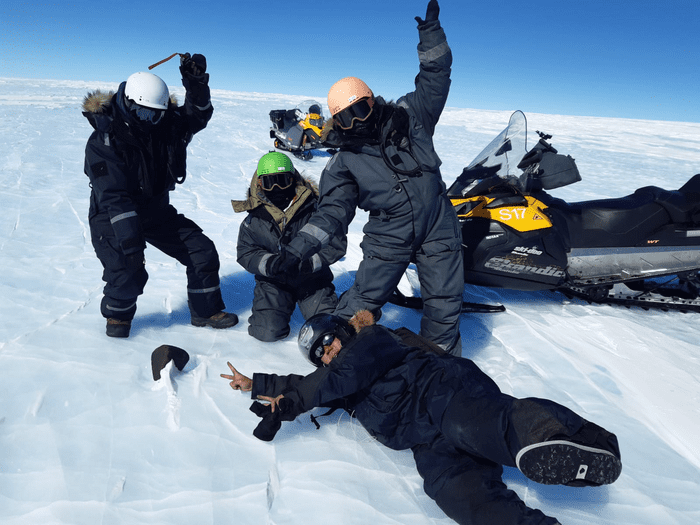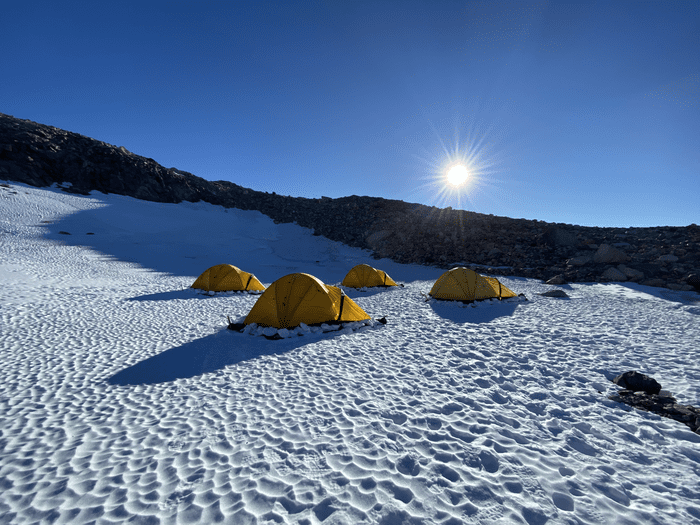Meteorite hunters in Antarctica have recently discovered five new space rocks that crash-landed to Earth, including one that weighs a hefty 7.6 kilograms (16.7 pounds). Around 45,000 meteorites have been located in Antarctica over the past century, but only about a hundred or so are this size, meaning the find is pretty special.
“Size doesn’t necessarily matter when it comes to meteorites, and even tiny micrometeorites can be incredibly scientifically valuable, but of course, finding a big meteorite like this one is rare, and really exciting,” Maria Valdes, a research scientist at the Field Museum and the University of Chicago, said in a statement.
“Studying meteorites helps us better understand our place in the universe. The bigger a sample size we have of meteorites, the better we can understand our Solar System, and the better we can understand ourselves,” she explained.
Finding meteorites in Antarctica can be a grueling but fruitful endeavor. Statistically speaking, meteorites are just as likely to land anywhere on Earth, although scientists have found significantly more fallen meteorites in Antarctica than in the rest of the world.

Happy days! The researchers celebrating their discovery. Image credit: Maria Valdes
How come? First of all, the black asteroids are simply easy to spot against the stark white landscape. Secondly, the environmental conditions of Antarctica are ideal for the preservation of space rocks, effectively acting as an asteroid refrigerator that keeps them on ice until scientists are lucky enough to stumble on them.
Elsewhere in the world, the damp and balmy conditions can corrode the asteroids before they’re discovered, but that isn’t a problem in the driest and coldest place on planet Earth.
However, asteroid hunting here isn’t without its challenges. Antarctica is desperately remote, and work here can be psychologically testing for some. Scientists doing research here will be stationed for months at a time in this profoundly unusual environment, cut off from their loved ones and home comforts.

Life as a scientist in Antarctica ain’t always glamorous. Image credit: Maria Valdes
Obviously, it can be damn cold too. To find meteorites, researchers must trawl across vast ice fields, sleeping in tents that feel the sting of the sub-zero temperatures. That said, it’s summertime in Antarctica at the moment, so conditions aren’t too severe, with average temperatures laying around -10°C (14°F).
Valdes notes that this means it was actually colder back home in Chicago around late December than in Antarctica on some days.
“Going on an adventure exploring unknown areas is exciting, but we also had to deal with the fact that the reality on the ground is much more difficult than the beauty of satellite images,” added Vinciane Debaille of the Université Libre de Bruxelles.
Source Link: Rare Meteorite That Crashed To Antarctica Is A Big Boy